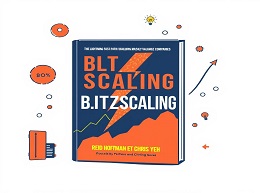Leadership and Self-Deception

The Hidden Barrier to Leadership
In "Leadership and Self-Deception," The Arbinger Institute offers a profound exploration of the role that self-deception plays in leadership and interpersonal relationships. By uncovering our blind spots and challenging our inward focus, this book presents a path to authentic leadership and meaningful relationships. Let's explore the key themes and insights from this enlightening work.
The Anatomy of Self-Deception: A Barrier to Effective Leadership
The book begins by examining the concept of self-deception a state in which individuals are blind to their own faults, biases, and negative behaviors. The Arbinger Institute argues that self-deception is the root cause of many leadership challenges, leading to destructive patterns of behavior and undermining trust and collaboration within organizations. By understanding the mechanisms of self-deception, leaders can begin to break free from its grip and cultivate more authentic and effective leadership.
The Box: Trapped by Inward Focus
Central to "Leadership and Self-Deception" is the metaphor of "the box" a psychological state characterized by self-deception and inward focus. When individuals are in the box, they see others as objects rather than people, viewing them through a distorted lens that justifies their own behavior and rationalizes their mistreatment of others. The Arbinger Institute explores the consequences of being in the box, both for individual leaders and for the organizations they lead.
The Power of Outward Mindset: Seeing Others as People
The antidote to self-deception, according to The Arbinger Institute, is adopting an outward mindset a perspective that sees others as people with their own needs, desires, and humanity. Leaders who embrace an outward mindset are able to transcend their own egos and connect with others on a deeper level, fostering trust, collaboration, and mutual respect. Through compelling examples and practical exercises, the book offers guidance on how to cultivate an outward mindset in oneself and within organizations.
The Ripple Effect of Self-Deception: Impact on Organizational Culture
"Leadership and Self-Deception" explores how self-deception can permeate organizational culture, creating toxic dynamics and hindering performance and innovation. When leaders are in the box, their behavior sets the tone for the entire organization, leading to a culture of blame, defensiveness, and mistrust. The book highlights the importance of leadership in shaping organizational culture and offers strategies for leaders to break free from self-deception and create a culture of openness, accountability, and collaboration.
The Arbinger Institute's Approach: A Framework for Transformation
Drawing on decades of research and consulting experience, The Arbinger Institute offers a practical framework for transformation based on the principles of self-awareness, empathy, and accountability. Through a combination of storytelling, reflection exercises, and actionable strategies, "Leadership and Self-Deception" guides readers on a journey of self-discovery and personal growth. By confronting their own self-deception and embracing an outward mindset, leaders can unlock their full potential and inspire positive change within themselves and their organizations.
Real-World Examples: Bringing Theory to Life
Throughout the book, The Arbinger Institute shares powerful real-world examples of leaders who have grappled with self-deception and overcome it to achieve remarkable results. From corporate executives to frontline managers, these stories illustrate the transformative power of adopting an outward mindset and breaking free from the constraints of the box. By witnessing the experiences of others, readers gain insight into their own blind spots and are inspired to embark on their own journey of self-discovery and growth.
Embracing Authentic Leadership
"Leadership and Self-Deception" offers a compelling argument for the importance of self-awareness, empathy, and authenticity in leadership. By confronting our own self-deception and embracing an outward mindset, leaders can unlock their full potential and foster positive change within themselves and their organizations. This book is a must-read for anyone seeking to break free from the constraints of the box and cultivate more meaningful and effective leadership in their personal and professional lives.
This review provides a comprehensive overview of the key themes and insights from "Leadership and Self-Deception," supplemented by real-world examples and practical guidance. Whether you're a seasoned executive, a frontline manager, or an aspiring leader, this book offers invaluable wisdom for overcoming blind spots and fostering authentic leadership in a complex and interconnected world.













